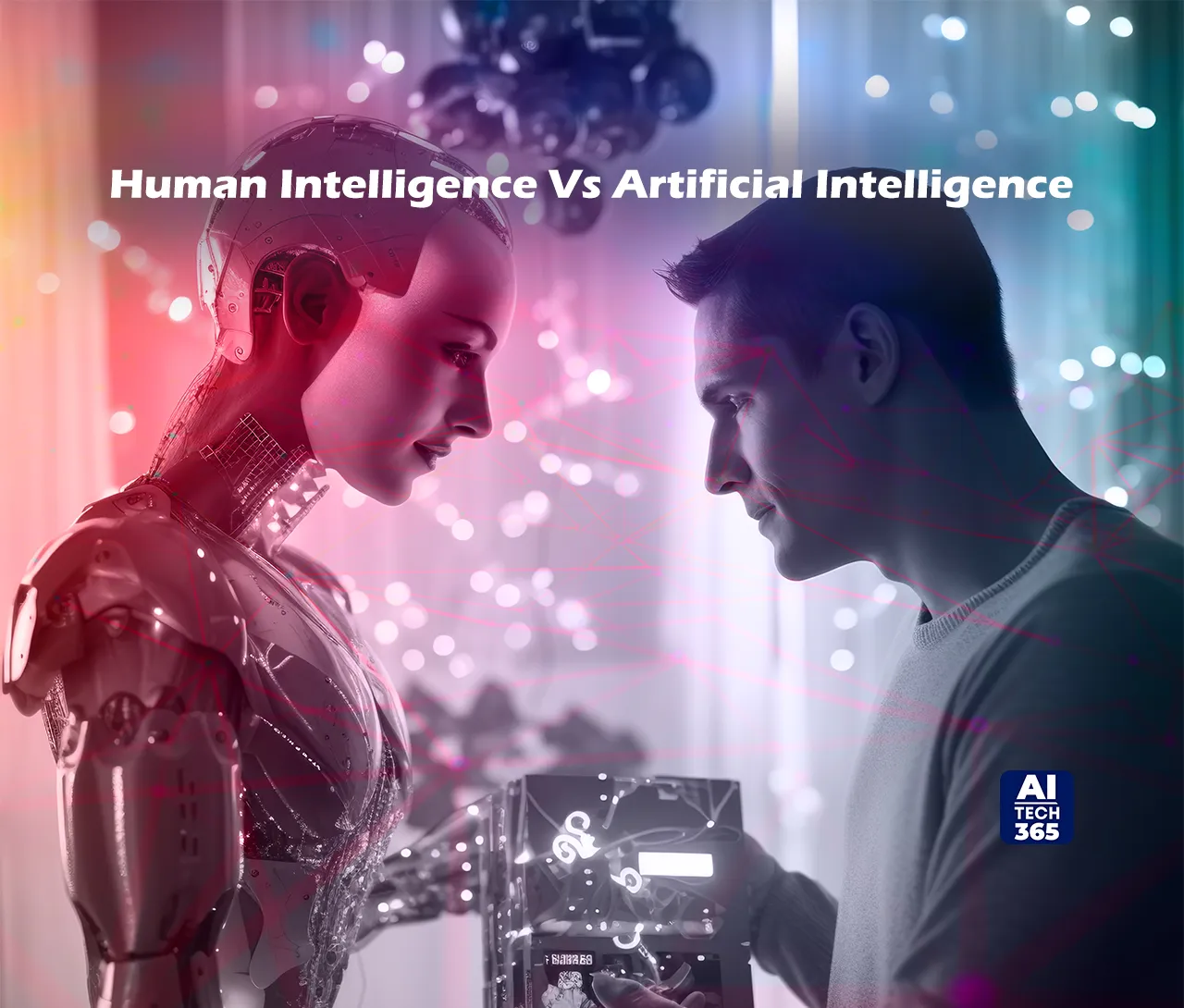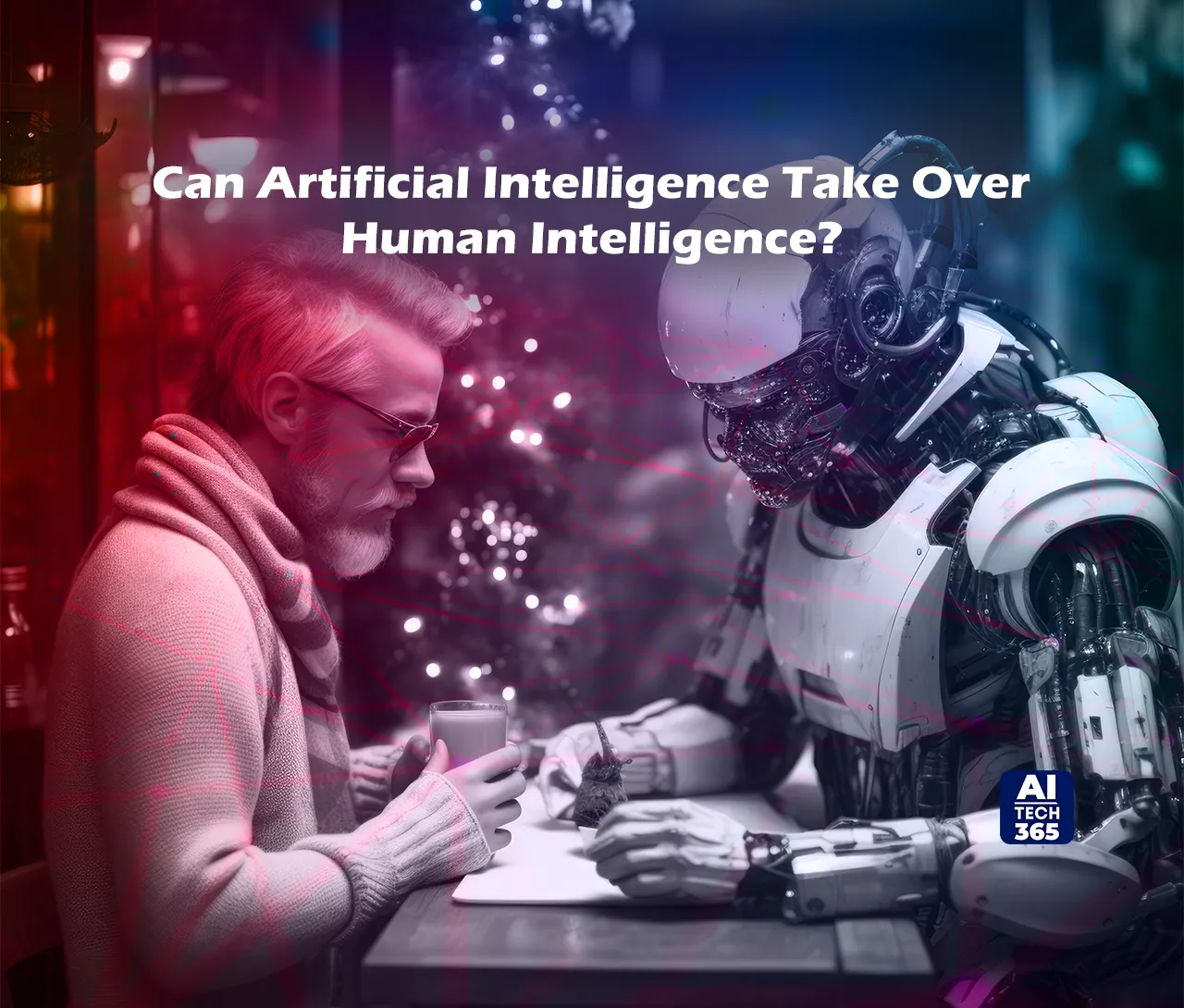Human intelligence vs. artificial intelligence (AI)—this question has arisen since the development of AI. Even though many people see AI as a helper that automates boring, repetitive tasks or performs labor-intensive tasks, the possibility of AI surpassing humans cannot be dismissed. However, companies do not see this possibility as a threat.
Big tech giants like Microsoft, Google, Apple, etc. are betting millions of dollars on artificial intelligence. The market for artificial intelligence is estimated to hit a valuation of $184 billion by 2024. People have experienced firsthand how popular ChatGPT has been and is being adopted since its release in December 2022. Let’s find an answer to this question of human intelligence vs artificial intelligence.
What is Artificial Intelligence?
The term artificial intelligence (AI) describes the creation and application of computer systems that are capable of carrying out operations that normally call for human intelligence. It is a large area of computer science that includes many different methods and strategies, with developments in deep learning and machine learning being important components.
AI systems are built to learn from available data and gradually produce predictions or classifications that are more accurate. They can simulate several cognitive functions of humans, including language comprehension, learning, reasoning, and problem-solving. AI has the power to streamline processes, resolve challenging issues, and enhance decision-making in a variety of sectors.
What is Human Intelligence?
The mental abilities and skills that enable humans to learn from experience, adapt to changing circumstances, understand and process abstract ideas, and apply information to master their environment are known as human intelligence.
It encompasses a variety of cognitive functions such as learning, reasoning, problem-solving, memory formation, communication, and decision-making. Although scientists continue to argue about the exact definition and nature of human intelligence, they generally agree that it is not a single ability, but a collection of different activities.
Human intelligence enables people to make plans, think creatively, solve problems, remember details, and communicate through language.
Human Intelligence Vs Artificial Intelligence
Humans design and code algorithms that enable computer systems to solve complex problems. These algorithms help computers learn from the environment and increase the versatility of AI.
When it comes to multitasking, social interactions, and self-awareness, human intellect outperforms AI. AI lacks IQ and follows the instructions humans give for certain tasks.
Although they are not the same thing, artificial and human intelligence are sometimes confused. AI enables computers to simulate cognitive functions such as learning and problem-solving. Human intelligence includes characteristics such as perception, memory, and creativity.
While it is not yet possible to combine AI and human intelligence, research shows that this can lead to algorithms that mimic human behavior.
Applications that use AI are precise and efficient in their tasks despite their inequalities. However, they are limited to imitating human intelligence. Since AI is not fatigued or stressed like humans, it performs tasks with a lower error rate. To summarize, artificial intelligence (AI) depends on data provided by humans, while human intelligence relies on the brain, memory, and cognitive abilities.
Also Read: What Is a Humanoid? A Closer Look Into Future Bots
Is Artificial Intelligence More Intelligent Than Humans?
The question of whether artificial intelligence is more intelligent than humans is a complex and debated topic. While AI has made significant advancements in specific tasks and domains, it is important to consider the broader context and limitations of AI systems.
AI systems excel in certain areas, such as processing large amounts of data, pattern recognition, and performing repetitive tasks with high accuracy and speed. They can analyze vast datasets and identify patterns that may not be immediately apparent to humans. However, AI systems typically lack the broader cognitive abilities and general intelligence that humans possess.
Human intelligence encompasses a wide range of capabilities, including creativity, intuition, emotional intelligence, and the ability to understand complex contexts. Humans can adapt to new situations, learn from experiences, and apply knowledge in diverse ways. Human intelligence is not solely based on data processing but also involves reasoning, critical thinking, and social interactions.
Can Artificial Intelligence Take Over Human Intelligence?
It is a subject of discussion and conjecture as to whether artificial intelligence may eventually surpass human intelligence. Even though AI has advanced significantly in some areas, it’s crucial to take into account the larger picture and the constraints of AI systems.
With the development of AI tools and humanoid robots like Tesla’s Optimus, Qinglong, China’s first full-sized general-purpose robot, and more. One thing is certain artificial intelligence is here to stay. Most importantly, it is been developed to help humans rather than to cause harm.
Artificial intelligence systems are particularly good at processing data, identifying patterns, and completing repetitive tasks quickly and accurately. Large volumes of data can be analyzed by them, and they can use patterns to anticipate outcomes or categorize objects. But AI systems usually don’t have the same general intelligence and wider cognitive capacities as people.
Human Intelligence Vs Artificial Intelligence: Who Will Win?
Artificial intelligence is transforming the employment landscape by enabling people with human-like abilities to pursue new career options and automating repetitive work. AI may foster growth and innovation in businesses by improving productivity and teamwork.
This has the potential to raise living standards, encourage economic growth, and increase product demand. The debate over human intelligence vs artificial intelligence points to a promising future in which humanoids and humans coexist and work together to support each other. AI and humans may live together in the future, creating a more peaceful and productive workplace for everybody.


